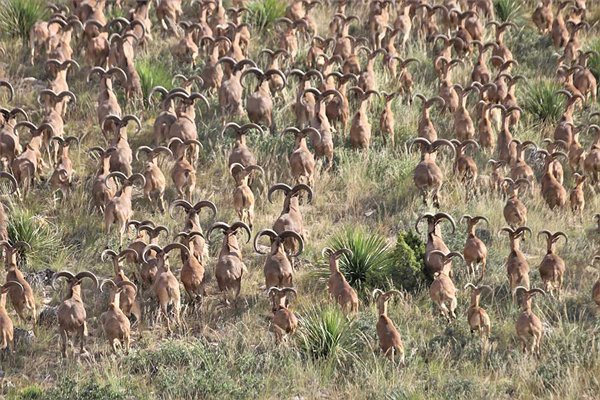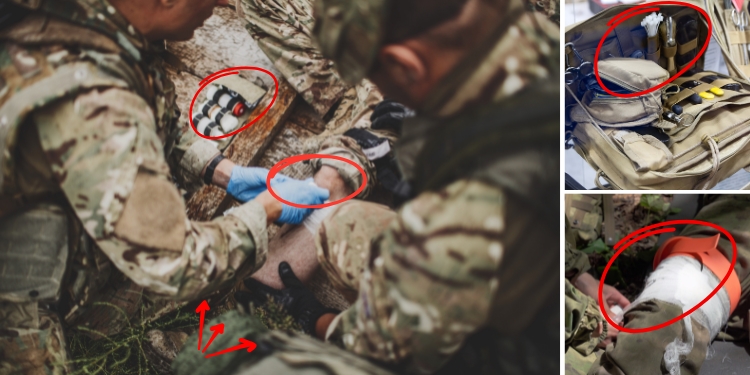Texas Just Legalized Hunting Aoudad from Helicopters

Lone Star lawmakers recently added aoudads to the list of animals hunters can shoot from helicopters in Texas as part of a management tool to aid in the ongoing fight against the invasive sheep.
Senate Bill 1245, which passed both state legislative chambers and was signed into law by Gov. Greg Abbott in May, will go into effect Sept. 1. The bill expands Texas’ aerial wildlife management permit system, which previously only listed feral hogs and coyotes, to include aoudad. Aerial culling efforts have helped Texas with its burgeoning feral swine population. A 2019 USDA study found that helicopter hog hunting, also called “porkchopping,” has successfully reduced hog numbers by at least 31 percent.
Aoudad, also known as Barbary sheep, aren’t native to Texas. Originating in North Africa, the species is well-suited to the rough and rugged terrain of West Texas. The animals were introduced to the state in the late 1950s primarily for exotic game ranching and hunting opportunities. Since then, this hardy big game species has flourished — often to the detriment of commercial livestock and native species such as mule deer and bighorn sheep.
“Aoudad sheep bring sheer destruction — they eat everything, spread disease, and push out native species,” representative Ed Morales, Jr, a sponsor of the bill, wrote on X.
High numbers of aoudad in dry environments can have a significant negative impact on browse resources, according to TPWD mule deer and pronghorn program leader Shawn Gray. “The desert ecosystem is so fragile. We’re not supposed to have thousands and thousands of animals on them long-term,” Gray told Texas Farm Bureau.
More than 30,000 aoudad currently roam the state of Texas. That’s a major increase from the 31 animals originally released in Armstrong County in 1957. Natural predation is not enough to keep the population in check.
“A coyote is not going to take one down. The lion could take one down, but it’s going to be a fight. So they’re breeding faster than you can manage them with a straight hunt,” West Texas rancher Warren Cude told The Texas Tribune.
Aoudad also carry the harmful bacteria Mycoplasma ovipneumoniae (M. ovip.), which spreads in respiratory droplets and secretions and can cause severe reactions and even death in commercial sheep and goat herds.
Read Next: Aoudad in West Texas: Is the “Poor Man’s Sheep Hunt” Really a Sheep Hunt?
Texas aoudad hold plenty of appeal for hunters, whether they choose to pursue them from a chopper or stalk them on foot. Because the animals live in rugged country, they offer would-be sheep hunters the chance to pursue a challenging species without waiting a lifetime to draw a tag or pay tens of thousands of dollars to hunt native sheep. Texas considers aoudad an exotic species, so there is no closed season or bag limit, although a valid Texas hunting license is required.
Read the full article here









